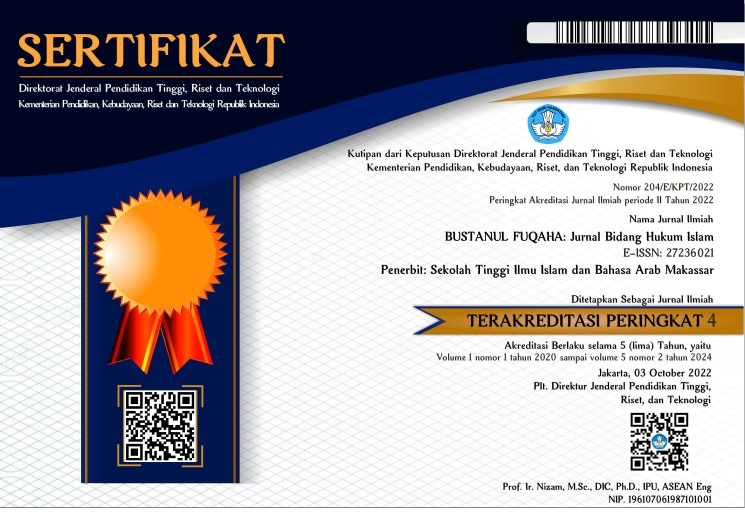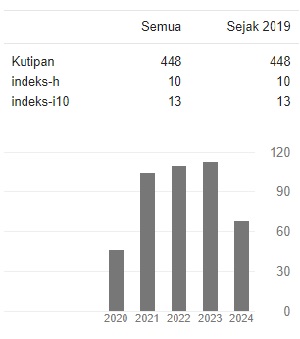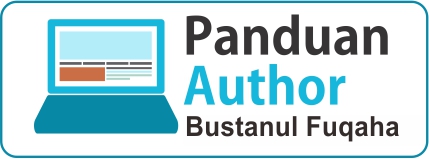Ketentuan Usia Pernikahan di Afrika Utara (Mesir, Tunisia, Maroko, Aljazair, Libya)
Marriage Age Requirements in North Africa (Egypt, Tunisia, Morocco, Algeria, Libya)
DOI:
https://doi.org/10.36701/bustanul.v4i3.1059Keywords:
Family Law, age of marriage, North AfricaAbstract
The North African region consists of countries where the majority of the population is Muslim, so family law provisions are regulated based on Islamic law by adopting or combining the views of certain schools of thought. One of the issues that is developing in the study of family law is the age of marriage. This research aims to explore the dynamics of the development of marriage age regulations in Muslim countries. This type of research is qualitative, with a normative approach, where the primary data source used, namely Family Law Laws in each country, is collected through library research or literature study, and analyzed descriptively qualitatively. The research results show that in several countries, the marriage age provisions vary; Egypt (18 years), Tunisia (18 years), Morocco (18 years), Algeria (19 years), and Libya (20 years). The majority of countries allow marriage dispensations and the marriage age requirement is above the child's age requirement. The implications of this research will be useful for academics who wish to study further contemporary issues of international family law as a scientific reference.
Downloads
References
Aini Awaliyah, Nur. “The Dynamics of Islamic Family Law Reform in Morocco on Guardians of Marriage.” Indonesian Journal of Law and Islamic Law 4, no. 2 (2022): 368–409. doi:https://doi.org/10.35719/ijlil.v4i2.245.
Arfaoui, Khedija. “Women on the Move for Gender Equality in the Maghreb.” Harvard University: Violence Against Women Research Database, 22 Juli 2016. https://projects.iq.harvard.edu/files/violenceagainstwomen/files/women_on_the_move_-_maghreb.pdf.
Asrori, Achmad. “Batas Usia Perkawinan Menurut Fukaha dan Penerapannya Dalam Undang-undang Perkawinan di Dunia Islam.” Al-’Adalah 12, no. 4 (Desember 2015): 807–26. doi:https://doi.org/10.24042/adalah.v12i2.215.
Bancin, Ratih Lusiani. “Hukum Keluarga Islam Di Tunisia.” Jurnal Penelitian Medan Agama 3, no. 1 (2016): 283–308. doi:http://dx.doi.org/10.58836/jpma.v0i0.3974.
Büchler, Andrea, dan Christina Schlatter. “Marriage Age in Islamic and Contemporary Muslim Family Laws A Comparative Survey.” Electronic Journal of Islamic and Middle Eastern Law 1, no. 1 (2013): 37–74. doi:https://doi.org/10.5167/uzh-78204.
“Child Marriage in the Middle East and North Africa.” UNICEF, 2017.
“Code Personal Status Tunisia 2012.” International Labour Organization, t.t. Diakses 15 Agustus 2023.
Danon, Zoe, dan Sarah R. Collins. “Women in the Middle East and North Africa: Issues for Congress.” Congressional Research Service, 16 Desember 2021. https://sgp.fas.org/crs/mideast/R46423.pdf.
Ebetürk, Irem. “Global Diffusion of Laws: The Case of Minimum Age of Marriage Legislation, 1965–2015.” European Journal of Cultural and Political Sociology 8, no. 3 (3 Juli 2021): 294–328. doi:10.1080/23254823.2021.1887749.
Engelcke, Dörthe. “Family Law Reform in Algeria: National Politics, Key Actors, and Transnational Factors.” Dalam Women and Social Change in North Africa, disunting oleh Doris H. Gray dan Nadia Sonneveld, 1 ed., 308–30. Cambridge University Press, 2018. doi:10.1017/9781108303415.015.
“Family Code, 1984: Algeria.” International Humanitarian Law Databases. Diakses 17 Agustus 2023. https://www.ilo.org/dyn/natlex/natlex4.detail?p_lang=fr&p_isn=22041.
“Family Law Libya.” Women’s Learning Partnership, 14 Oktober 2015.
Kassab, Ammar. “Compendium Country Profile Cultural Policy in Algeria.” Cultural Policy in The Arab Region, 2014.
Kelly, Sanja. Hard-Won Progress and a Long Road Ahead: Women’s Rights in the Middle East and North Africa. New York: Freedom House, 2010.
Khatib, Neimat. “Country Profile Morocco 2018.” RES4Africa (Renewable Energy Solutions for Africa), 2018.
“Law No. 12 Of 1996 Promulgating The Child Law Amended By Law No. 126 of 2008.” The National Council For Childhood And Motherhood, t.t. Diakses 14 Agustus 2023.
“Law No. 2006-10 of March 6, 2006 supplementing the provisions of the Personal Status Code.” International Labour Organization, 6 Maret 2006.
“Law No. 2008-20 of March 4, 2008 amending certain provisions of the Personal Status Code.” International Labour Organization, 4 Maret 2008.
“Libya Country Legal Profile.” Proelium Law, t.t. Diakses 17 Agustus 2023.
“Majallah al-Akhwal Ash-Shakhshiyyah-Code of Personal Status Tunisia.” The Center for Arab Women for Training and Research, 13 Agustus 1956.
Menawy, Marwan. “Despite Child Marriage Being Illegal in Egypt, It Is Still All Too Common.” Arab News, 23 Februari 2018.
“Morocco Family Code 2004.” Women’s Learning Partnership, t.t. Diakses 17 Agustus 2023.
Mubarak, Hosni. “Code - Official Journal - Issue 24 (Bis) - Dated 15 June 2008.” International Labour Organization, 15 Juni 2008.
Muzdhar, Atho’, dan Khairuddin Nasution. Hukum Keluarga Dunia Islam Modern. 1 ed. Jakarta: Ciputat Press, 2003.
“National Child Protection Legislation.” International Center For Missing & Exploited Children, Maret 2018.
Norris, Pippa. “The State of Women’s Participation and Empowerment: New Challenges to Gender Equality.” UN Women, 22 Oktober 2020.
Nurinayah. “Hukum Keluarga di Mesir.” Familia: Jurnal Hukum Keluarga 1, no. 2 (22 Desember 2020): 93–108. doi:10.24239/familia.v1i2.9.
Parkinson, Patrick. “Family Laws and Access to Justice.” Contemporary Readings in Law and Social Justice 8, no. 1 (2016): 37–69. doi:10.22381/CRLSJ8120163.
Parolin, Gianluca P. “One Hundred Years of Family Law Reform in Parliament, in Court, and on Screen.” Abdou Filali-Ansary Occasional Paper Series 6 (Desember 2021). https://ecommons.aku.edu/uk_ismc_series_ops/7.
Permana, Dede Ahmad. “Majallah Al Akhwal Ash-Shakhshiyyah dan Pembaharuan Hukum Keluarga di Tunisia.” Jurnal Studi Gender dan Anak 7, no. 01 (30 Juni 2020): 1–18. doi:10.32678/jsga.v7i01.173.
“Profil Negara Republik Tunisia.” Kementerian Luar Negeri Republik Indonesia. Diakses 24 September 2023. https://kemlu.go.id/tunis/id/read/profil-negara-republik-tunisia/584/etc-menu.
“Qanun al-Usrah Al-jazair 2005.” Kementerian Aljazair- مصالح الوزير الأول. Diakses 17 Agustus 2023. http://jafbase.fr/docMaghreb/Algeriecode_famille.pdf.
“Qanun No. 10 Tahun 1984 Libya Tentang Khitbah, Pernikahan, Thalaq.” The Law Society of Libya, 19 April 1984.
“Reforming Moroccan Family Law: The Moudawana.” Centre For Public Impact A BCG Foundation, 2 Mei 2016.
Sabbe, Alexia, Halima Oulami, Wahiba Zekraoui, Halima Hikmat, Marleen Temmerman, dan Els Leye. “Determinants of Child and Forced Marriage in Morocco: Stakeholder Perspectives on Health, Policies and Human Rights.” BMC International Health and Human Rights 13, no. 1 (Desember 2013): 1–12. doi:10.1186/1472-698X-13-43.
Samaha, Nivine. “Khul’ in Egypt Between Theory and Practice a Critical Analysis for Khul’ Implementation.” The American University in Cairo, 2017. https://fount.aucegypt.edu/etds/654.
“The Moroccan Family Code (Moudawana) Of February 5, 2004.” Human Rights Education Associates, t.t. Diakses 16 Agustus 2023.
Tholabie Kharlie, Ahmad, Asep Syarifuddin Hidayat, dan Hafiz Muhammad. Kodifikasi Hukum Keluarga Islam Kontemporer: Pembaruan, Pendekatan dan Elastisitas Penerapan Hukum. 1 ed. Jakarta: Kencana, 2020.
“Towards Ending Child Marriage Global Trends and Profiles of Progress.” UNICEF, 2021.
“Tunisia.” Office of the United Nations High Commissioner for Human Rights, t.t. Diakses 15 Agustus 2023.
“Tunisia Gender Justice & The Law.” United Nations Economic and Social Commission for Western Asia, 2018.
“Undang-Undang Nomor 92 Tahun 1995 tentang Perlindungan Anak di Tunisia.” Legal Database Relating To The Security Sector In Tunisia, 9 November 1995.
Wahib, Ahmad Bunyan. “Reformasi hukum keluarga di dunia Muslim.” Ijtihad : Jurnal Wacana Hukum Islam dan Kemanusiaan 14, no. 1 (30 Juni 2014): 1–19. doi:10.18326/ijtihad.v14i1.1-19.
Wahyudani, Zulham, Jefry Tarantang, Nurrohman Nurrohman, dan Tatang Astarudin. “Family Law Reform in Morocco: A Case Study on Child Marriage Law.” Al-Qadha : Jurnal Hukum Islam dan Perundang-Undangan 10, no. 1 (9 Juni 2023): 51–64. doi:10.32505/qadha.v10i1.5866.
Wijayati, Mufliha. “Family Law Reform In Tunisia (Reading the Rules of Polygamy in The Tunisian Code of Personal Status 1957).” Jurnal Ilmiah MIZANI 8, no. 01 (2021): 147–57. doi:http://dx.doi.org/10.29300/mzn.v8i1.10268.
“Women’s Political Participation in Egypt Barriers, Opportunities and Gender Sensitivity of Select Political Institutions.” the Organisation for Economic Co-operation and Development, Juli 2018. https://www.oecd.org/mena/governance/womens-political-participation-in-egypt.pdf.














